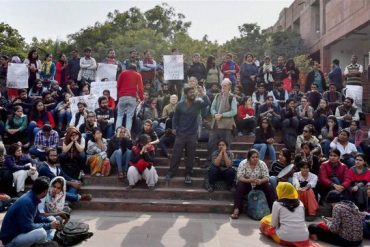New Delhi: The Indian industry Tuesday welcomed the Reserve Bank of India’s (RBI) move to cut some key lending rates by 50 basis points, saying it would boost investments and sentiments of the economy.
The RBI in its annual monetary policy for 2012-13 has cut some key rates by 50 basis points in an effort to push industrial growth and stimulate economy — a move that may also see interest rates fall in housing, automobile and commercial loans.
“The cut in repo rate by 50 basis points is a welcome move, which was much needed given that the GDP growth is moderating and IIP (index of industrial production) growth is declining,” Chandrajit Banerjee, director general of Confederation of Indian Industry (CII), said about the RBI’s annual monetary policy.
“The repo rate cut will provide the boost to investment as well as send a strong signal that turning around growth is of pivotal importance.”
Announcing the monetary policy for the current fiscal, RBI Governor D. Subbarao said the repurchase rate was being cut by 50 basis points to 8 percent, which will automatically see the reverse repurchase rate also drop to 7 percent from 7.5 percent.
The repurchase rate is the interest the central bank levies on short-term borrowings by commercial banks. The reverse repurchase rate is the interest on short-term lending. A cut in these rates reduces the cost of accessing funds for lending institutions.
A cut in these rates also eases money supply in the system by making it more attractive for commercial banks not to park their funds with the Reserve Bank of India in the form of government securities, and instead lend it for commercial purposes.
Industry body FICCI (federation of Indian chambers of commerce and industry) also welcomed the move, and asked the government to push the reforms process.
“The RBI governor’s recognition of the need to bring growth back on track by cutting the repo rate by 50 basis points is a welcome move,” said R.V. Kanoria, president, FICCI.
“While the cut in policy rates by RBI is an encouraging move, we also need the government to push reforms as this would improve business sentiment and spur investments in the economy.”
FICCI hopes that the Government would take cognizance of the need to rein in fiscal deficit and contain expenditure on subsidies by taking corrective measures particularly in the pricing of petroleum products.
Industry body ASSOCHAM (associated chambers of commerce and industry of India) said that the RBI’s move could even possibly reverse inflationary pressures.
“This has set the stage for cheaper lending costs and created an investment climate which could even possibly reverse inflationary pressures,” said D.S. Rawat, secretary general, ASSOCHAM .
Sectoral industry body FISME (federation of Indian micro and small and medium enterprises) has welcomed the Reserve Bank of India’s decision to cut both the repo and reverse repo rates by 50 basis points but felt that the cuts should have been steeper and combined with a reduction in the Cash Reserve Ratio (CRR) to introduce more liquidity in the system.
“It is a very important step and we welcome it, but steeper reductions were needed to kick start demand in key sectors such as housing, auto and white goods,” said V.K. Agarwal, president, FISME.
“The government needs to take decisive steps to address supply-side constraints so as to enable the RBI to continue on the path of monetary easing and boost demand creation.”
IANS
The opinions, beliefs and viewpoints expressed by authors, news service providers on this page do not necessarily reflect the opinions, beliefs and viewpoints of Hill Post. Any views or opinions are not intended to malign any religion, ethnic group, club, organization, company, or individual.
Hill Post makes no representations as to the accuracy or completeness of any information on this site page.



